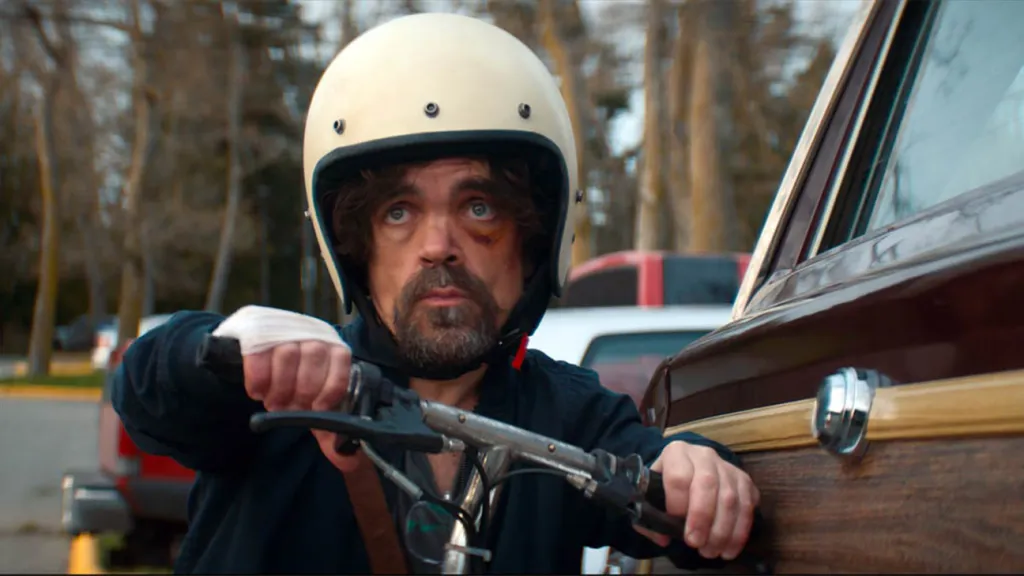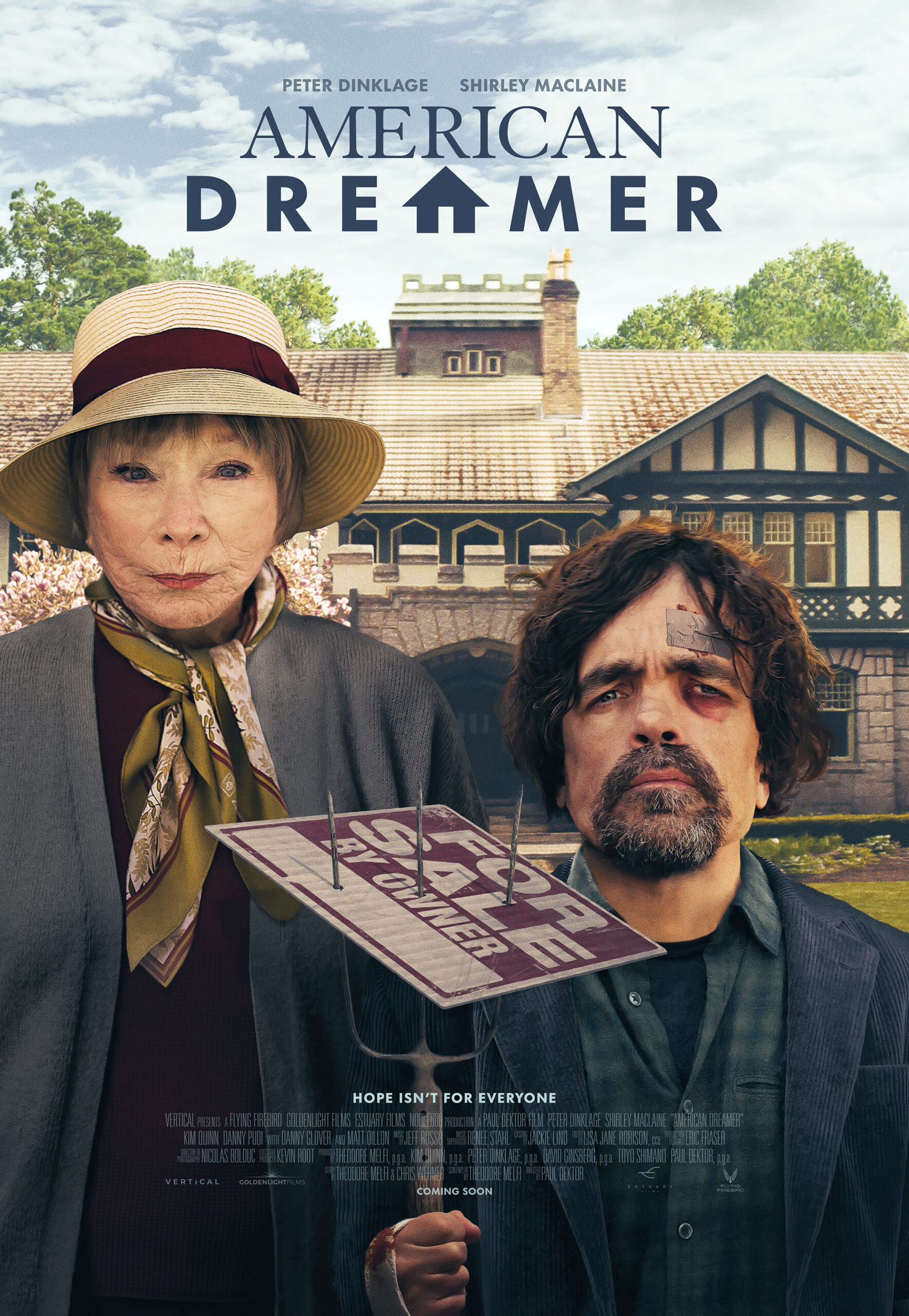American Dreamer
Posted on March 14, 2024 at 5:28 pm
B-| Lowest Recommended Age: | Mature High Schooler |
| MPAA Rating: | Rated R for disturbing material, violence, some strong sexual content, pervasive language, and drug use |
| Profanity: | Strong language |
| Alcohol/ Drugs: | Drinking and drunkenness, drugs |
| Violence/ Scariness: | Comic peril, sad death |
| Diversity Issues: | Class issues |

Sometimes an actor seems more interested in the role he wants to play than the movie he wants to make. Peter Dinklage is wonderful to watch as always in “American Dreamer” as an unhappy adjunct professor (meaning no benefits, no tenure, not even a parking spot) who is morose and cynical and yet somehow still appealing to the ladies. He’s opposite the always wonderful to watch legend Shirley MacLaine. Even so, the movie does not quite work.
Dinklage is the dreamer of the title, Dr. Phil Loder, who teaches “cultural economics.” In the opening scene, he tells his students that “we are now simply a collection of things we acquire.” He urges them not to define themselves in terms of their possessions and to seek true value in what cannot be bought and sold. He does not follow his own advice, though. He spends his free time scanning through real estate listings as though he was swiping right on a dating app. The houses he gazes at so lovingly are all way out of his price range. The realtor representing those high-end mansions is Dell (Matt Dillon), superficially smooth, professionally affable but with the heart of a cash register.
Dell is fed up with Phil, who comes to lavish open-houses and tells prospective buyers not to bid. Phil is fed up with pretty much everything, especially himself. And then he discovers an ad for a spectacularly beautiful mansion on the water with an unusual provision: the home is owned by an elderly woman. She is looking for someone who will pay her $250,000 to move into an apartment in the home and perform some caretaker duties, and then will inherit the entire property when she dies.
Dell investigates and tells Phil that the house is in immaculate condition and the owner is frail and has no children. Phil cashes in everything he has to raise the money. And then he finds out the deal is a not quite what he was promised. The owner is the spry Astrid Fanelli (Shirley MacLaine), who looks like she will outlive Phil and all of his 20-something students. And she keeps introducing him to her “kids,” including one who is an estate lawyer and tells Phil she will make sure he never gets the house.
The movie cannot decide if it is social commentary or a redemption story, and it does not quite work as either one. Still, lesser Dinklage is still worth a watch.
Parents should know that this movie includes very strong language, drinking and drunkenness, old age and a sad death, and sexual references and situations with brief non-sexual nudity.
Family discussion: Why was Phil so bitter? Why was he so insensitive to other people?
If you like this, try: “”She Came to Me,” “The Baxter,” “Cyrano,” and “The Station Agent,” better Dinklage films.

